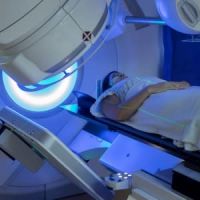As 3D mammography has become more widely available, figures show that an increasing number of women are opting for this screening test over the standard 2D mammography. Reports have indicated that this screening test leads to reduced number of false positive results, and has been found to identify more cancers in women with dense breasts.
However, regarding supplemental screening, there is insufficient evidence to assess whether the advantages outweigh the harms for women with dense breasts. As a result, the U.S. Preventive Services Task Force has given supplemental screening an “I” rating.
False positive results are a major concern among researchers. For women who are not at high risk for breast cancer, supplemental screening may identify potential trouble spots. This may lead to invasive follow-up tests such as breast biopsies, and may create unnecessary anxiety and fear for many patients if these results are ultimately determined to be false positives.
Dr. Sharon Mass, an OB-GYN, and former chair of the American College of Obstetricians and Gynecologists’ New Jersey section, shared concern stating, “On the one hand, we want to do everything we can to improve detection.But on the other hand, there are lots of costs and emotional distress” regarding false-positive results.
Many clinicians believe that for women with dense breasts who have additional risk factors for breast cancer, including family or personal history of breast cancer, supplemental screening should be a recommendation.
The cost of additional testing is another factor of concern. The Preventive Services Task Force recommend that women get regular screening mammograms. However, health plans are generally required to cover the expenses without out-of-pocket contributions. Unfortunately, this is not the case with supplemental screening for women with dense breasts, and supplemental imaging can be expensive when uncovered by health plans.
Several doctors have recommended alternative and easy options to supplemental screening that may help to reduce breast cancer risk for women with dense breasts. These include losing weight, moderating alcohol intake and avoiding long term hormone replacement.
Source:CNN News
Image Credit: iStock



























